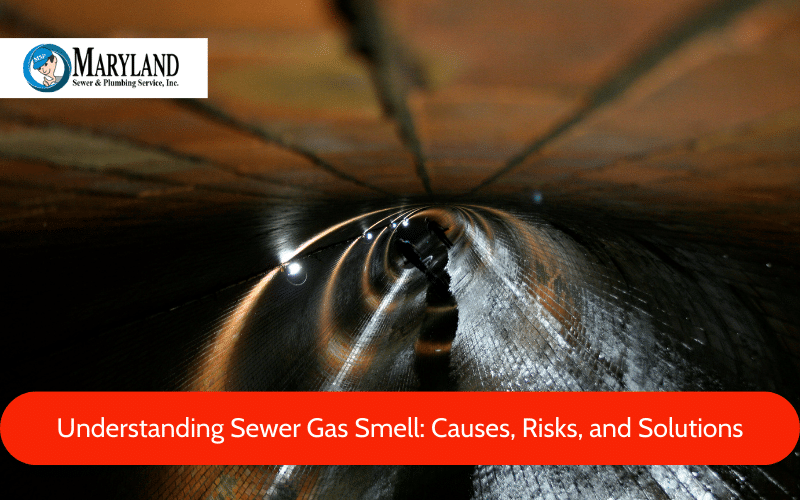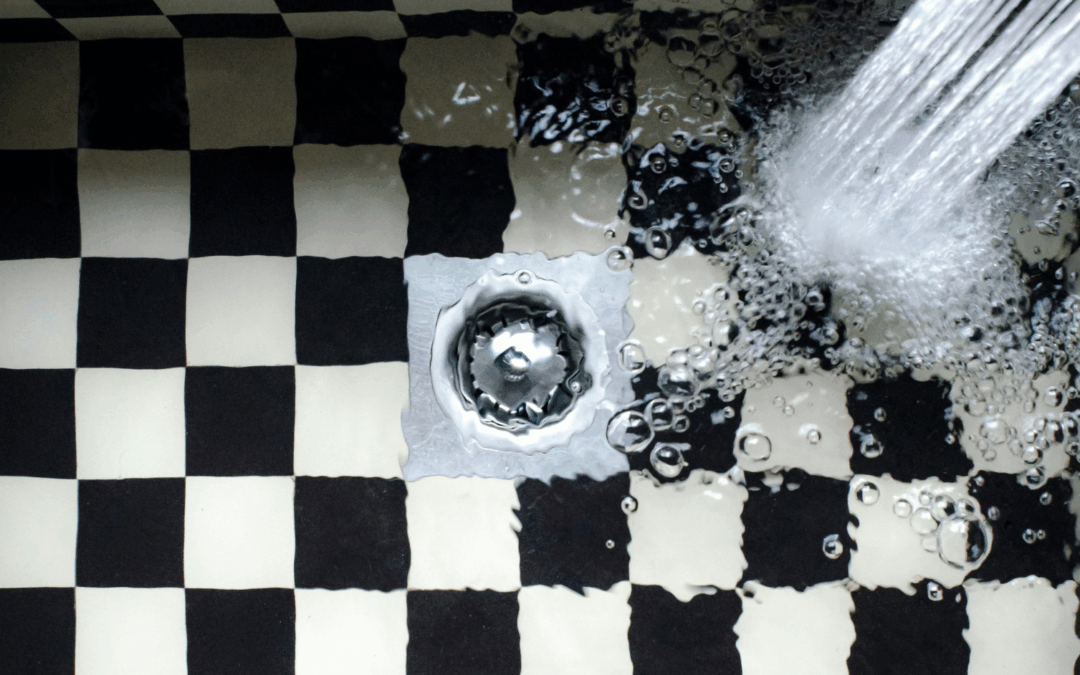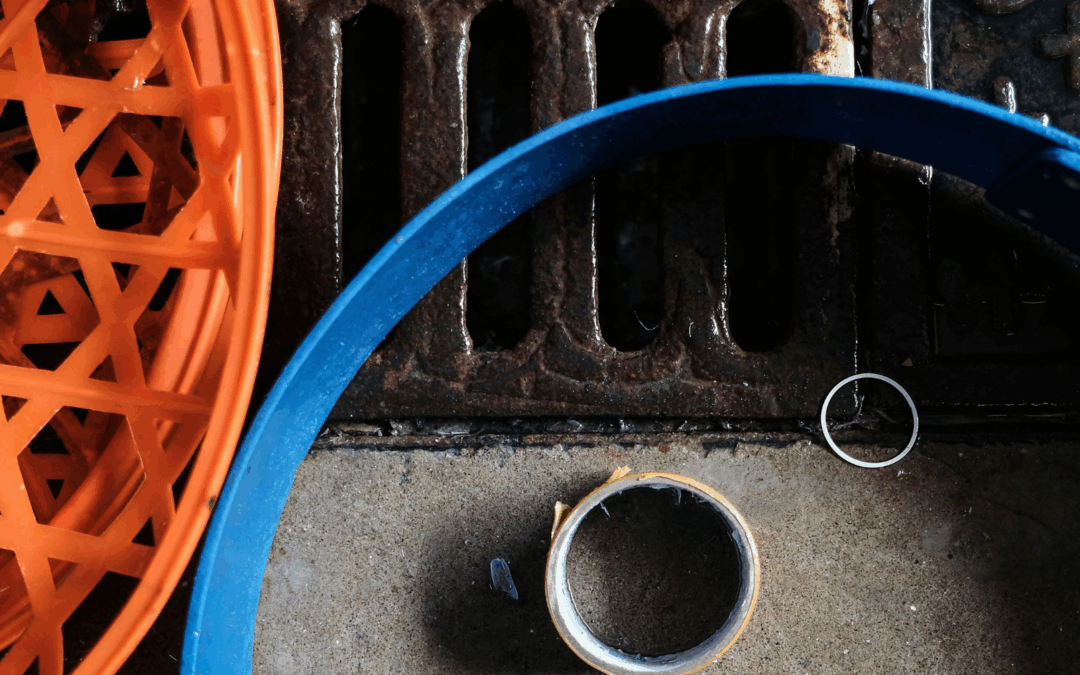Do you know what that sewer gas smell is in your home? Keep reading!
Have you ever walked into your home or workplace and been hit with an unpleasant, foul odor that seems to come from the depths of the plumbing system? That stench could very well be sewer gas—a mixture of toxic and non-toxic gases formed by the decomposition of household and industrial waste.
Commonly, sewer gas smells like rotten eggs due to the presence of hydrogen sulfide, a highly odorous compound. But what exactly causes this unwelcome guest to invade your living or working space?
Schedule Service Online
Get a free estimate so you know what you're signing up for
"*" indicates required fields
For Emergency Services Call: 410-255-9300
Signs You Have a Sewer Gas Smell Problem
Identifying the presence of a sewer gas smell in your home can be straightforward, but recognizing the subtle signs that precede or accompany this odor can help you respond more quickly and effectively. Watch out for the following indicators that you might have a sewer gas problem:
1. Unpleasant Odors
The most obvious sign is the distinctive, unpleasant smell akin to rotten eggs, which is caused by hydrogen sulfide gas. If you notice this odor in or around your home, it’s a clear indicator of a sewer gas leak.
2. Frequent Drain Clogs
While occasional clogs are common, frequent blockages in your toilets, sinks, or shower drains can signal a deeper issue within your plumbing system, potentially contributing to sewer gas leaks.
3. Gurgling Sounds
Listening to your plumbing can provide clues to underlying problems. Gurgling sounds coming from drains or toilets can indicate a poorly vented plumbing system, which might lead to sewer gas entering your home.
4. Health Symptoms
If you or your family members start experiencing sudden health symptoms such as headaches, dizziness, nausea, or eye and throat irritation without a clear cause, it could be due to exposure to low levels of sewer gas.
5. Visible Sewer Line Damage
Noticing any signs of damage to your outdoor sewer lines, such as sinking soil, excess moisture, or unexplained green patches of grass, can also be a sign that sewer gas is escaping before it reaches municipal lines.
Recognizing these signs early on can be crucial in addressing a sewer gas issue before it becomes a significant health risk or requires extensive and costly repairs.
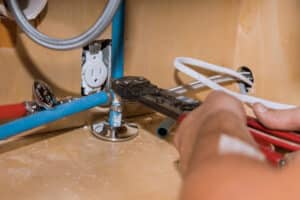
Common Causes of Sewer Gas Smell
Several factors can contribute to the presence of sewer gas smell in your home, indicating various plumbing issues that may require immediate attention. Understanding these causes can help in promptly addressing and rectifying the problem:
1. Dry P-Traps
The water in the P-traps of your sinks, toilets, and floor drains acts as a barrier against sewer gases. If these traps dry out, they can allow gases to enter your home.
2. Damaged Sewer Lines
Cracks or breaks in your home’s sewer lines can provide a pathway for sewer gas to escape, potentially leading to noticeable odors inside the house.
3. Vent Pipe Blockages
The plumbing system’s vent pipes expel sewer gases out of your home. Should these become clogged with leaves, bird nests, or other debris, it can force the gases back into your living spaces.
4. Improperly Installed or Failing Seals
Toilets, sinks, and other fixtures are sealed to prevent gas leaks. Over time or due to poor installation, these seals can fail, allowing sewer gases to leak creating sewer odor.
5. Clogged Drains and Sewer Lines
Clogs can cause waste to accumulate, leading to the production of sewer gases. If these gases cannot escape through the drain pipe, they might come back into the home.
6. Issues with Septic Systems
For homes with septic systems, any malfunction – such as full septic tanks or field line issues – can cause sewer gases and sewer smells to back up into the house.
Understanding these common causes can guide homeowners in taking the necessary steps to remedy the situation, whether through DIY fixes or by seeking professional help. Regular maintenance and prompt attention to any signs of sewer gas are critical in maintaining a healthy, odor-free home or loose connections can release sewer gas into your environment.
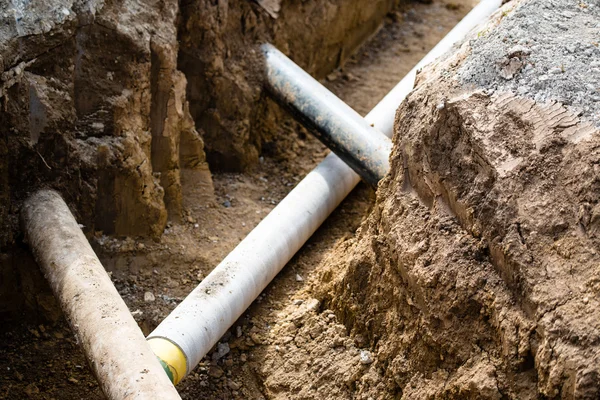
Health and Safety Implications
While the smell itself is off-putting, is sewer gas dangerous?
Risks Associated with Prolonged Exposure
- Respiratory Issues: Inhaling sewer gas, particularly hydrogen sulfide, can cause irritation of the eyes, nose, and throat.
- Headaches and Dizziness: Even in small amounts, sewer gas can lead to headaches, dizziness, and nausea.
- Severe Health Risks: Chronic exposure can lead to more serious conditions such as loss of consciousness, memory loss, and even death in extreme cases.
- Fire Hazard: Methane—a major component of sewer gas—is highly flammable and can create a fire hazard in confined spaces.

Identifying the Source
Finding the origin of the sewer odors is the crucial first step in addressing the issue. Here are some tips to help you locate the source:
Tips for Locating the Source of Sewer Smell
- Sniff Test: Follow your nose to the areas where the smell is strongest.
- Inspect P-Traps: Check under sinks and other fixtures to ensure P-traps contain water.
- Examine Seals: Inspect the seals around toilets, sinks, and other plumbing fixtures for any signs of wear or damage.
- Check Vents: Ensure that plumbing vents are not blocked by debris, nests, or other obstructions.
- Look for Leaks: Use a flashlight to examine sewer pipes for cracks, leaks, or loose fittings.
How to Fix Sewer Gas Smells
Addressing a sewer gas smell in your home requires pinpointing and mitigating the underlying issues that lead to the escape of these gases. If you smell sewer gas in your home, here are actionable steps homeowners can take to eliminate the odor and ensure their living environment remains healthy and safe:
1. Water Your P-Traps
Regularly pour water down infrequently used drains to maintain a water barrier in P-traps. This simple action prevents sewer gases from rising up through the drains and creating sewer gas odor.
2. Check for and Repair Leaks
Inspect your home for any signs of leaks in the plumbing system. Pay special attention to the area around toilets, sinks, and other fixtures. If you discover any damage or suspect a leak, consult with a professional plumber for repairs.
3. Clear Vent Pipes
Ensure that the plumbing vent pipes on your roof are free of blockages. You can check for obstructions such as bird nests, leaves, or other debris. In some cases, it might be necessary to hire a professional to safely clear these vents.
4. Address Drain Clogs
Use a plunger or a plumber’s snake to clear clogs from your drains. For more severe blockages, consider hiring a professional drain cleaning service to ensure your plumbing system operates smoothly without contributing to sewer gas buildup.
5. Inspect and Pump Septic Tanks
If your home uses a septic system, ensure regular inspections and pump-outs are conducted by a septic service professional. A full or malfunctioning septic tank is a common source of sewer gas odors.
6. Seal Gaps and Cracks
Examine the base of toilets, sinks, and other fixtures for any gaps where sewer gas could escape. Use silicone caulk or appropriate sealants to close these openings securely.
7. Professional Evaluation
When DIY solutions do not eradicate the sewer gas smell, it’s time to call in the experts. A licensed plumber or a sewer gas detection service can provide a comprehensive assessment of your home’s plumbing system, identifying and rectifying complex issues that may not be apparent to the untrained eye.
By following these steps, homeowners can effectively address the unpleasant and potentially hazardous problem of sewer gas smell in their homes. Regular maintenance and prompt action at the first sign of trouble are key to maintaining a safe and comfortable living environment.
When to Call a Professional
While DIY remedies can be effective, there are times when professional intervention is necessary:
When to Seek Professional Help
- Persistent Odor: If the smell persists despite your best efforts, it’s time to call in a professional.
- Complex Issues: Issues like major leaks, extensive blockages, or damaged plumbing systems require expert attention.
- Health Concerns: If you experience health symptoms such as headaches, dizziness, or respiratory issues, seek professional help immediately.
What to Expect During a Home Visit
- Thorough Inspection: A professional plumber will conduct a comprehensive sewer camera inspection of your plumbing system.
- Diagnostic Tests: They may use specialized equipment to detect to see if you have a natural gas leak, blockages, or damaged pipes.
- Repairs and Recommendations: Depending on the findings, the plumber will perform necessary repairs and provide recommendations for preventing future issues.
Choosing the Right Professional: Why MD Sewer and Plumbing is Your Best Choice
When it comes to addressing and resolving sewer gas smell issues in your home, it’s essential to choose a professional service that is both skilled and trustworthy.
MD Sewer and Plumbing stands out as a premier choice for several reasons. Certified and experienced, the team at MD Sewer and Plumbing brings a level of expertise and precision that is unmatched.
They employ state-of-the-art diagnostic equipment to accurately pinpoint the source of the problem, ensuring that repairs are not just quick but also effective and lasting.
Preventive Measures
Preventing sewer gas smell is easier and more cost-effective than dealing with the problem after it occurs. Here are some long-term solutions and best practices:
Long-Term Solutions
- Regular Maintenance: Schedule routine inspections and maintenance to keep your plumbing system in good condition.
- Use Drains Regularly: Regularly run water down all drains to keep P-traps filled.
- Install Vents: Ensure your plumbing system has adequate venting to allow gases to escape outside.
- Seal Gaps: Regularly check and seal any gaps around plumbing fixtures.
Best Practices
- Proper Disposal: Avoid flushing non-biodegradable items down the toilet or sink.
- Check for Cracks: Periodically inspect pipes and fixtures for signs of wear and tear.
- Use Eco-friendly Cleaners: Opt for natural, eco-friendly cleaning agents to avoid harming your plumbing system and the environment.
Conclusion and Call to Action
Dealing with sewer gas smell can be a daunting task, but understanding its causes, risks, and solutions can make it more manageable. By identifying the source, applying DIY remedies, knowing when to call a professional, and taking preventive measures, you can maintain a safe and odor-free environment.
Have you experienced a sewer gas smell in your home or office? Share your experiences and solutions in the comments below! If you need further advice or professional help, don’t hesitate to reach out to a licensed plumber.
By taking proactive steps today, you can ensure a healthier and more pleasant living or working space for the future.

